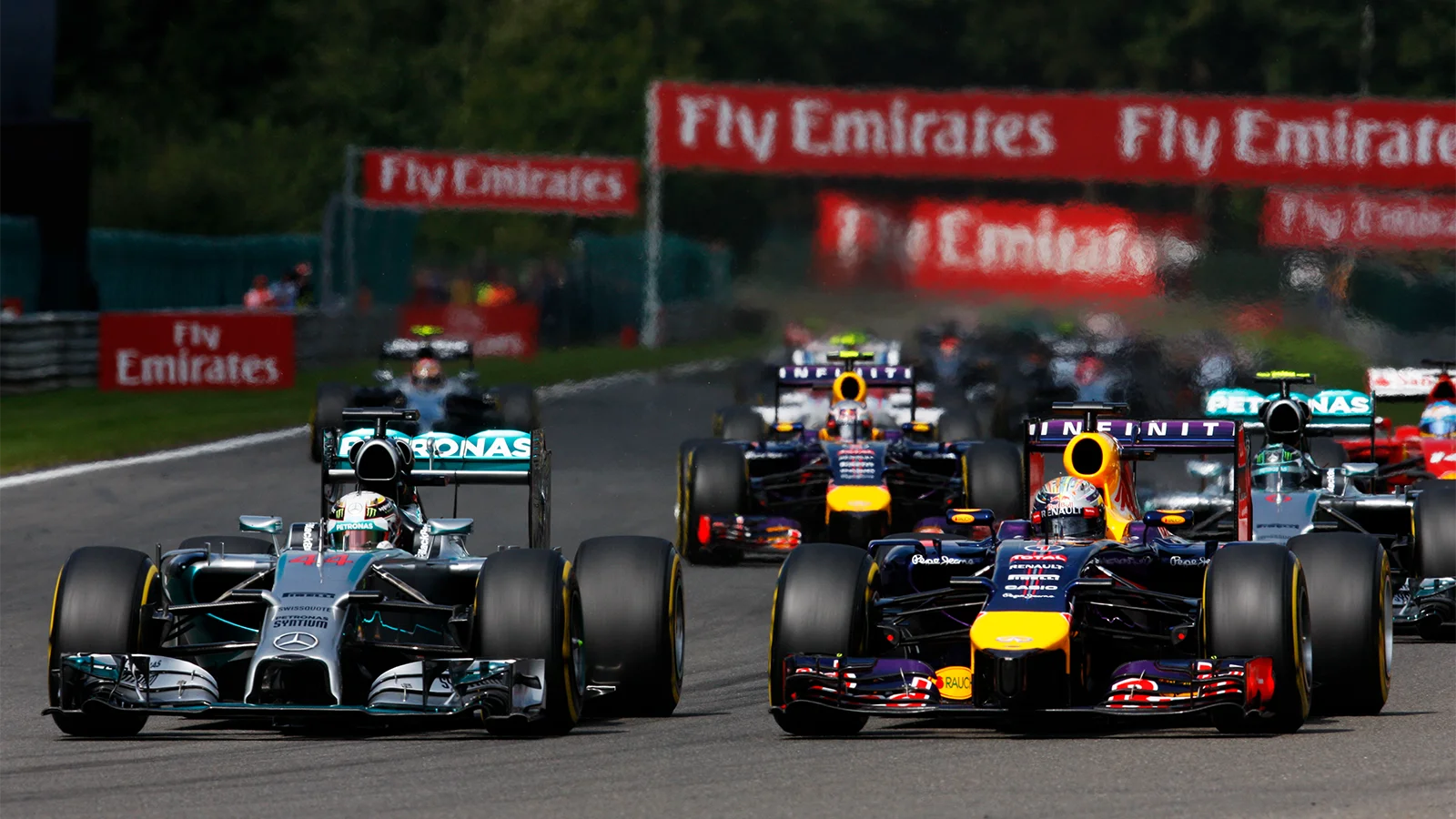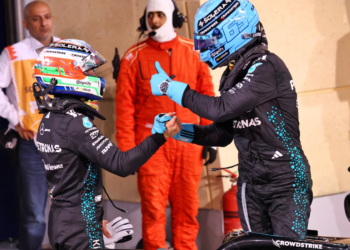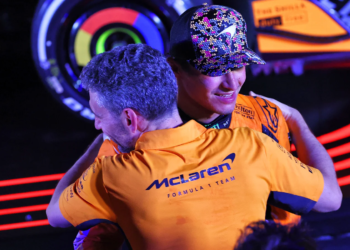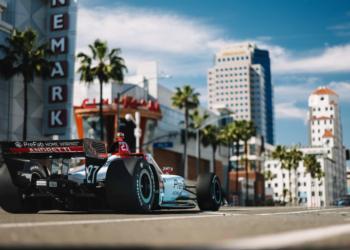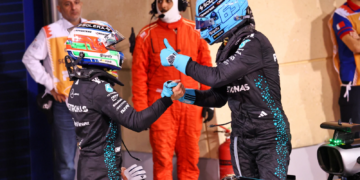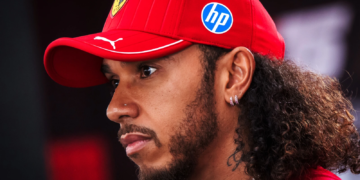Red Bull boss Christian Horner wants to avoid a repeat of Mercedes’ Formula 1 dominance in 2014 when next year’s engine formula is introduced.
Horner’s remarks come off the back of a Friday meeting between FIA president Mohammed Ben Sulayem and representatives of F1’s OEMs in Bahrain.
The meeting was to discuss the viability of reintroducing V10 engines with sustainable fuels and perhaps curtail next year’s formula early amid growing concerns of costs, performance and convergence.
The consensus is that V10 plans should be shelved for the time being, in favour of making a success of next year’s regulations, where the current hybrid powertrain will run on 100% sustainable fuels, without the current MGU-H system and split power evenly across electrification and internal combustion.
READ MORE – F1 V10 plan postponed amid desire to make a success of 2026 engines
Red Bull wants to work on convergence in 2026
The final point creates complexity and opens up the potential for vast performance disparity between OEMs, such as the march Mercedes stole on the competition when hybrids were first introduced in 2014.
Red Bull suffered during those days with engine partner Renault, and Horner wants to avoid the same happening again when his outfit debuts its first in-house powertrain in partnership with Ford.
“When you get a big regulation change, there is performance divergence and that is almost certain to happen next year,” Horner told Sky Sports F1 following the Friday meeting.
“One of the topics on the agenda this morning was how quickly can there be convergence.
“We have a budget cap. Perhaps the engines don’t need homologating, perhaps you’re able to upgrade your engines under that budget cap to encourage convergence as quickly as possible.
“I think we all want to have close-quarters racing, not a repeat of what we had in 2014.
“It’s about having that ability – particularly for the newcomers – to be able to catch up.”
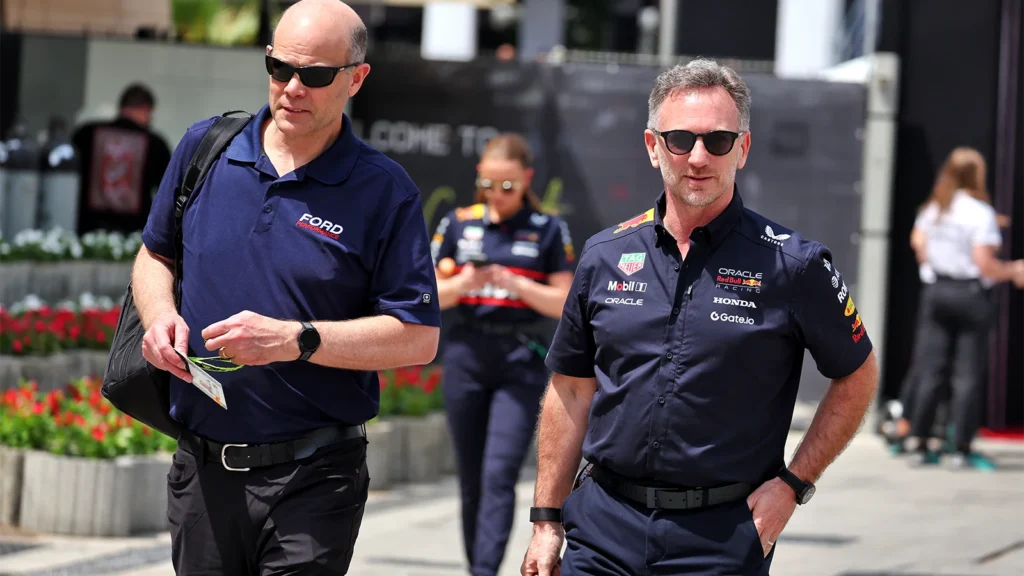
Audi and Honda are two of the five OEMs competing in F1 from 2026, were opposed to scraping next year’s engine formula early in favour of V10s.
Horner has the same stance, given the money and effort that has gone into setting up Red Bull Powertrains on the back of the new rules.
“No we absolutely don’t [support a V10 switch], we’re building an infrastructure based on the current set of regulations, and so whatever the future regulations are, it needs to take into account the resources that teams have and you know, we’ve structured our business around this current set of regs,” Horner said.
“We’re excited about ’26. You know, it’s rapidly approaching, and in the engine world, it’s literally tomorrow. But, you know, we’re making very good headway and pleased with progress.”
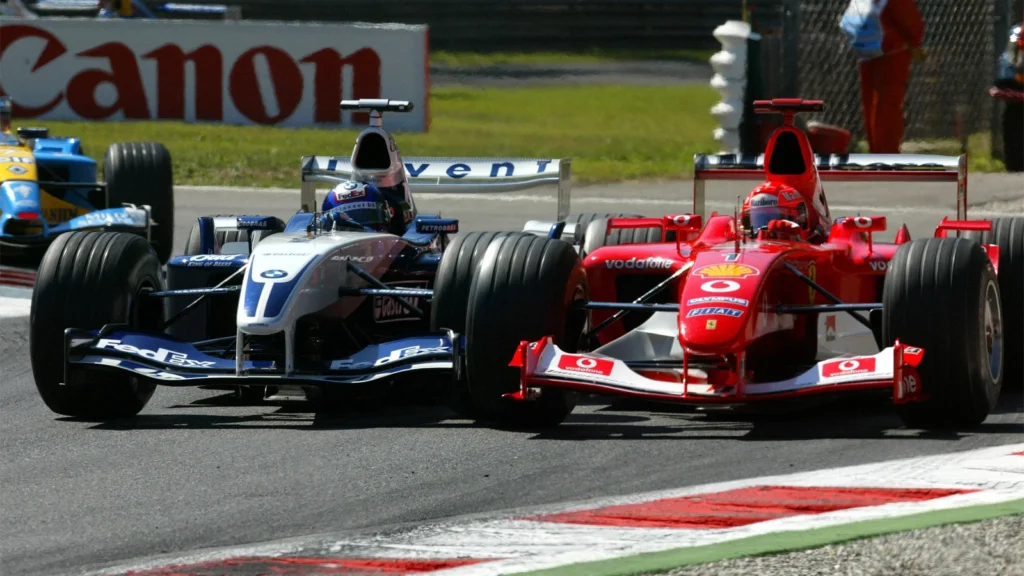
Horner not totalling ruling out V10s in F1’s future
Horner made his debut as Red Bull Team Principal in 2005, the final year of F1’s V10 engines, and he does admit that the “romanticist” in him would like to see them return.
“I think the romanticist in me, you know, a screaming V10 could be really attractive for Formula 1,” he said.
“But it’s got to be done responsibly and, you know, with electrification as well, you know, what does that engine look like? And, you know, is it a 10, is it an 8?”
Horner added that Friday’s discussion “was a very cordial, productive meeting with the FIA president asking for feedback about what the next generation of engine should look like.”
It’s clear that 2026 is set in stone, but a plan for V10s in the future isn’t completely out of the question.
“Obviously 2026 is absolutely fixed, but thinking a little further down the line, what is the right trajectory for Formula 1? 2028 is pretty much impossible,” Horner mused.
“I think it’s a fact-finding mission at the moment.
“It’s now down to the power unit manufacturers to feed back to the FIA.
“They’re gaining all their information and then it’ll progress from there.”
READ MORE – F1 drivers make V10 stance clear amid unexciting 2026 rules

